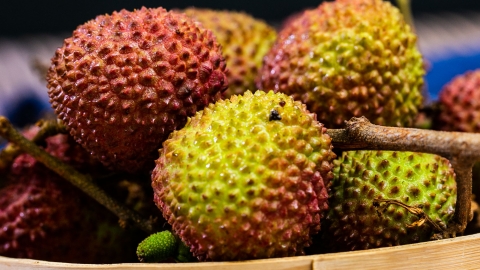Can patients with facial paralysis eat lychee?
Facial paralysis refers to facial nerve palsy. Under normal circumstances, patients with facial nerve palsy can eat lychee, but should consume it in moderation. Detailed explanation is as follows:

Facial nerve palsy mainly causes symptoms such as crooked mouth and eyes and drooling. As a fruit, lychee contains abundant vitamins and trace elements, which can help supply nutrients needed by facial paralysis patients and may benefit the improvement of their condition.
However, lychee has a high sugar content. Excessive consumption may cause blood sugar fluctuations and symptoms such as dry mouth and tongue, and mouth ulcers, which may hinder the recovery from facial nerve palsy. Additionally, some individuals may be allergic to lychee, experiencing allergic reactions such as skin rashes, itching, and diarrhea after consumption. Therefore, patients who are allergic to lychee should avoid eating it.
In daily life, patients are advised to maintain good lifestyle habits, such as regular sleep patterns, moderate exercise, and a balanced diet, which can help promote the recovery process of facial nerve palsy.






